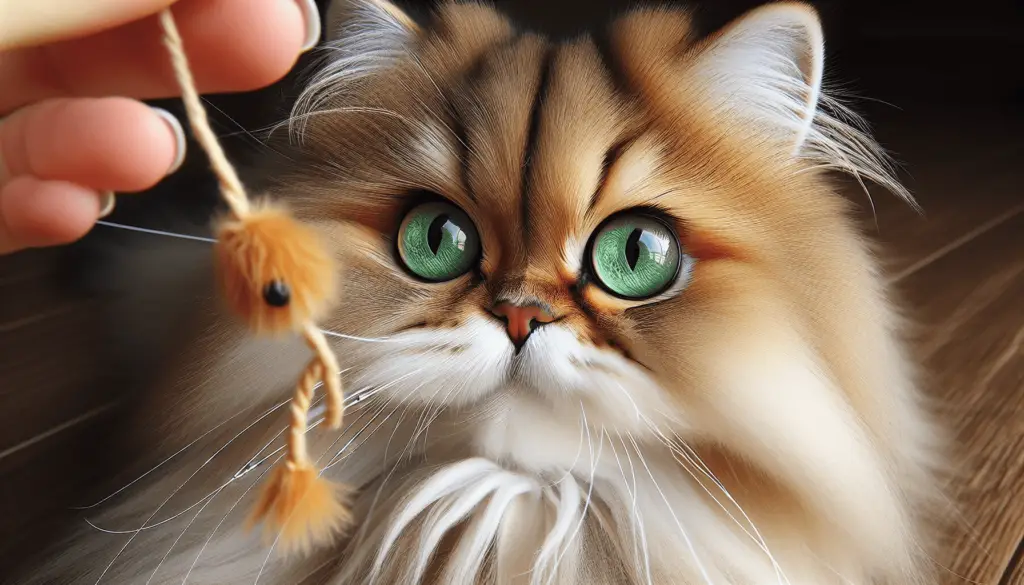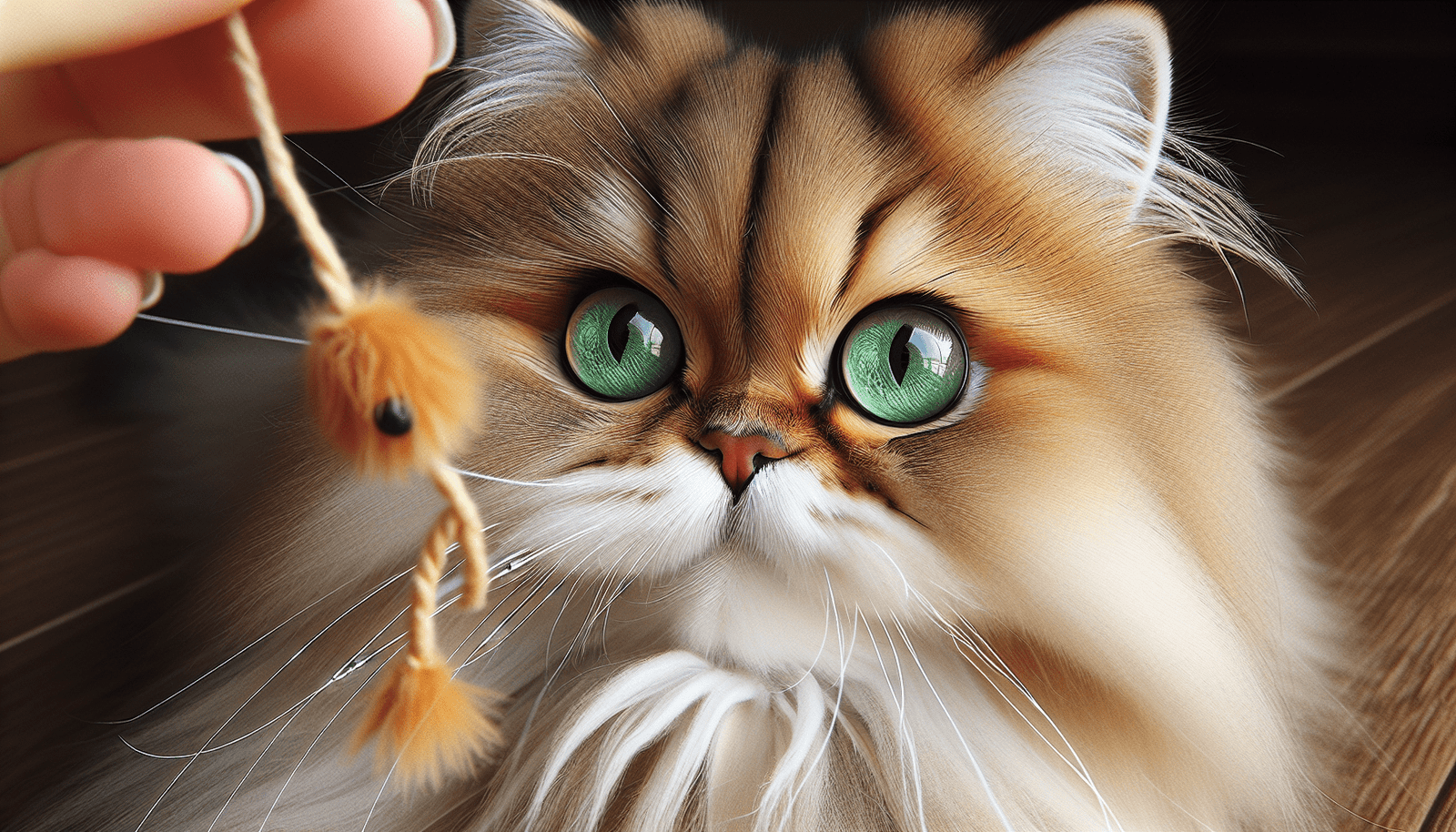So you’ve decided to embark on the journey of becoming a proud Persian cat owner? Congratulations! In this beginner’s guide to buying a Persian cat, we will provide you with all the essential information you need to know before bringing home your new feline friend. From understanding their unique personality traits to preparing your home for their arrival, we’ve got you covered. Whether you’re a seasoned cat lover or a first-time pet owner, this article will guide you through the process of finding and purchasing the perfect Persian cat for you. Get ready to create a loving and fulfilling bond with your new furry companion!
Choosing a Persian Cat
When considering getting a Persian cat, one of the first things to think about is whether their breed characteristics align with your lifestyle. Persian cats are known for their calm and docile nature, making them ideal companions for those who prefer a relaxed and quiet environment. They are indoor cats and thrive in peaceful homes without a lot of noise or commotion. If you have a busy household or small children, it may be worth considering if a Persian cat is the best fit for you.
To make an informed decision, it’s important to research the different Persian cat breeds. There are several variations, such as the Doll Face Persian, Exotic Shorthair Persian, and Himalayan Persian. Each breed has its own distinct characteristics and traits. Take the time to understand these differences and choose the breed that best matches your preferences and lifestyle.
In addition to considering the breed, determine the age and gender of the cat you would like to bring into your home. Kittens require more time and attention, as they need to be trained and socialized. Adult cats, on the other hand, may already have established behaviors and could be a better fit if you have a busy schedule. Similarly, the gender of the cat can also impact their temperament and behavior. Take your time to understand the differences between male and female Persian cats before making a decision.
Lastly, evaluate the health of the cat you are considering adopting. It’s crucial to ensure that the cat is healthy and free from any underlying medical conditions. Look for signs of a healthy coat, clear eyes, and a clean nose. It’s also important to ask the breeder about the cat’s medical history and any vaccinations or treatments they have received. A healthy cat will bring you years of joy and companionship.
Finding a Reputable Breeder
Once you have decided on the type of Persian cat you want, finding a reputable breeder becomes crucial. A reputable breeder is the foundation of ensuring the health and well-being of your new furry friend.
Start by asking for recommendations from friends, family, or your local veterinarian. They may have had previous experiences with reputable breeders or can point you in the right direction. Personal recommendations are valuable as they are based on real experiences and provide insights into the breeder’s reputation.
Online research is another effective method to find reputable breeders. Visit websites dedicated to Persian cat enthusiasts and read reviews and testimonials from other cat owners. Look for breeders who have positive feedback and are recognized for their ethical breeding practices.
Attending cat shows and events is not only a fun way to learn more about Persian cats, but it also provides an opportunity to meet reputable breeders. Speak with breeders at these events, ask questions, and learn about their breeding program. Seeing the cats in person will also give you an idea of their overall health and appearance.
Once you have found potential breeders, it’s essential to interview them to ensure they meet your expectations. Ask about their experience, breeding practices, and the conditions in which the cats are raised. A reputable breeder will be transparent and open to answering all your questions.
Checking the breeder’s credentials is the final step in ensuring their legitimacy. Verify their membership with relevant cat associations and ask for documentation that proves their cats are from healthy and registered bloodlines. Reputable breeders will have no issues providing this information and will have a genuine passion for their cats’ well-being.

Preparing Your Home
Before bringing your Persian cat home, it’s important to create a safe and comfortable environment for them to thrive in. By taking the time to prepare your home, you are ensuring a smooth transition for both you and your new furry family member.
Provide a safe and comfortable environment by removing any potential hazards. Persian cats are known for their long, luxurious coats, which make them prone to getting tangled or caught in objects. Keep cords, small objects, and toxic plants out of reach to prevent any accidents. Secure windows and balconies to prevent your cat from going outside or falling.
In addition to creating a safe space, it’s essential to provide a dedicated area for your cat. This can be a separate room or a specific corner in your home where they can have their litter box, beds, toys, and scratching posts. Cats appreciate having their own space, and it helps them feel secure and in control, especially during the initial adjustment period.
Be sure to stock up on essential supplies before bringing your Persian cat home. These include necessities such as a litter box, litter, food and water bowls, scratching posts, toys, and grooming tools. Having these items ready will ensure a smooth transition and provide your cat with everything they need to settle into their new home.
Understanding the Costs
Owning a Persian cat comes with certain costs that every potential owner should consider. By being aware of these expenses, you can effectively plan ahead and ensure you can provide your Persian cat with the care they deserve.
The initial purchase price of a Persian cat can vary depending on the breed, bloodline, and whether you are purchasing from a reputable breeder or a pet store. Persian cats from reputable breeders typically come with a higher price tag due to the quality and care they receive. It’s essential to budget accordingly and be prepared to invest in a cat that has been ethically bred and is in good health.
Routine veterinary care is another cost to consider. Persian cats, like any other breed, require regular check-ups, vaccinations, and preventive care. These expenses help maintain your cat’s overall health and well-being. It’s important to establish a good relationship with a trusted veterinarian who can provide the necessary care for your Persian cat.
Grooming expenses are a significant consideration for Persian cat owners. Their long, beautiful coats require regular grooming to prevent matting and keep them looking their best. This may involve professional grooming or investing in grooming tools such as brushes, combs, and shampoos. Regular grooming not only keeps your cat’s coat healthy but also helps strengthen the bond between you and your feline friend.
Providing high-quality food and treats is essential for your cat’s nutrition and overall health. Persian cats have specific dietary needs, and it’s important to choose a cat food brand that meets those requirements. Investing in quality food may be slightly more expensive, but it contributes to your cat’s well-being and can prevent future health issues.
Toys and enrichment items are another factor to consider. Persian cats, like all cats, need mental and physical stimulation to prevent boredom and behavioral problems. Supplying them with a variety of toys and activities will keep them entertained and happy.

Knowing the Breed-Specific Care
Persian cats have unique grooming and care requirements due to their luxurious coats and distinct facial structure. Understanding these breed-specific care needs will help you provide the best possible care for your Persian cat.
Grooming is a crucial aspect of Persian cat care. Their long coats require regular brushing to prevent matting and tangling. Daily brushing is recommended to remove loose hair and keep their coat healthy and free from knots. It’s important to establish a grooming routine from a young age so that your cat becomes accustomed to the process. This not only keeps your cat looking beautiful but also helps prevent hairballs and minimizes shedding.
Bathing and hygiene are also important when it comes to Persian cats. While they are generally clean animals, occasional baths are necessary to maintain their coat’s cleanliness and health. Use cat-friendly shampoos that are specifically formulated for Persian cats to ensure their skin and coat are properly cared for.
Coat maintenance goes beyond brushing and bathing. Regular trimming of the hair around the eyes and bottom is necessary to prevent irritation and hygiene issues. You may also want to invest in tear stain removers to keep the area around the eyes clean and stain-free.
Eye care is a significant concern for Persian cats due to their distinctive facial structure. Their large, round eyes are prone to tear staining and eye discharge. Clean your cat’s eyes daily with a damp, soft cloth or specialized eye wipes to prevent buildup and maintain optimal eye health.
Respiratory health is another aspect specific to Persian cats. Their short noses and flat faces make them more susceptible to respiratory issues. Keep an eye out for any signs of breathing difficulties, excessive snoring, or wheezing. If you notice any concerning symptoms, consult your veterinarian for guidance.
Integrating Your Persian Cat into Your Home
Bringing a Persian cat into your home is an exciting time, but it’s important to introduce them gradually to ensure a smooth transition. Cats are creatures of habit and may need time to adjust to their new surroundings.
Start by providing a separate space for your Persian cat initially. This can be a small room or an area that is quiet and secure. Set up all the necessary items, such as a litter box, food and water bowls, beds, and toys. This gives your cat a safe space to retreat to and helps establish a sense of familiarity.
Establishing a feeding routine is key to ensuring your cat’s overall well-being. Regular meal times create a sense of structure and routine for your Persian cat. It’s important to provide high-quality cat food appropriate for their age and specific dietary needs. Consult your veterinarian for guidance on the best feeding practices for your Persian cat.
Offer plenty of affection and playtime to help your Persian cat feel loved and engaged. Spend time bonding with them through gentle petting and interactive play sessions. Persian cats enjoy the company of their humans and thrive on attention and affection.
Health Considerations
Ensuring the health of your Persian cat should be a top priority as a responsible owner. Regular veterinary check-ups are essential for maintaining their overall well-being. Schedule routine visits with a trusted veterinarian to monitor your cat’s health and catch any potential issues early on.
Vaccinations and preventive care play a significant role in keeping your Persian cat healthy. Follow the recommended vaccination schedule as advised by your veterinarian. These vaccinations protect against common feline diseases and help prevent future health problems.
Be aware of common health issues that may affect Persian cats. These include respiratory problems, dental issues, eye problems, and polycystic kidney disease. Regular check-ups and open communication with your veterinarian will help address any potential health concerns promptly.
It’s important to familiarize yourself with the signs of illness in Persian cats. Look out for changes in behavior, appetite, litter box habits, or overall appearance. Cats are masters at hiding signs of illness, so it’s crucial to be observant and seek veterinary care if you notice anything unusual.
Training and Behavioral Tips
Persian cats are generally well-behaved and easy-going, but training and socialization are still important for their overall well-being.
Positive reinforcement techniques are the most effective way to train your Persian cat. Rewarding good behavior with treats or praise encourages them to repeat those desirable actions. Never resort to punishment or harsh training methods, as these can damage the trust between you and your cat.
Litter box training is an essential aspect of Persian cat care. Show your cat the location of the litter box and make sure it is easily accessible. Use a litter that your cat prefers and ensure it is cleaned regularly. Positive reinforcement is crucial when it comes to litter box training, as it helps your cat associate the litter box with positive experiences.
Socialization with people and other pets is important to ensure your Persian cat becomes well-adjusted and friendly. Expose them to various situations, sounds, and people from a young age. This helps them develop confidence and reduces the likelihood of fear or anxiety-related behaviors.
Discouraging undesirable behaviors, such as scratching furniture or excessive meowing, requires redirection and patience. Provide appropriate scratching posts and toys to redirect their natural behaviors. If your Persian cat meows excessively, try to identify the underlying cause, such as boredom or seeking attention, and address it accordingly.
Maintaining a Healthy Diet
Feeding your Persian cat a balanced and nutritious diet is crucial for their overall health and well-being. Choosing the right cat food and monitoring their intake is key to maintaining a healthy diet.
Choose high-quality cat food that is specifically formulated for Persian cats. Look for options that contain high-quality protein sources and are free from fillers and artificial ingredients. Consult your veterinarian for recommendations tailored to your cat’s specific needs.
Avoid overfeeding your Persian cat, as they are prone to obesity. Measure their food portions accurately and follow the guidelines provided by the cat food manufacturer. Regularly monitor your cat’s weight to ensure they are maintaining a healthy body condition.
Monitor your cat’s water intake and ensure they have access to fresh water at all times. Persian cats are prone to dehydration, so it’s important to encourage regular drinking. Consider providing multiple water sources throughout your home to ensure they stay hydrated.
In addition to balanced nutrition, provide your Persian cat with opportunities to exercise and stay active. Interactive toys, scratching posts, and play sessions provide both mental and physical stimulation. Regular exercise helps prevent weight gain and promotes a healthy lifestyle.
Building a Bond with Your Persian Cat
Building a strong bond with your Persian cat is a rewarding experience that enhances the joy of having them as a companion. By spending quality time together and understanding their preferences, you can create a deep connection.
Spend quality time with your Persian cat, engaging in activities they enjoy. This can include grooming sessions, cuddling, or playtime with their favorite toys. Cats appreciate the attention and companionship, and it strengthens the bond between you.
Use interactive toys to keep your Persian cat entertained and engaged. Toys that encourage their natural instincts, such as hunting or chasing, are particularly beneficial. Experiment with different types of toys to find ones that your cat enjoys the most.
Every cat has unique preferences, so taking the time to understand your Persian cat’s personality and likes will deepen your bond. Observe their favorite sleeping spots, scratching preferences, and other behaviors. Providing them with things they enjoy, such as a cozy bed or their preferred scratching surface, shows that you understand and care for them.
Provide mental stimulation for your Persian cat to prevent boredom and promote their overall well-being. Puzzle toys, treat-dispensing toys, or interactive feeders are great options to engage their mind and challenge their problem-solving abilities.
By following these guidelines and investing time and effort into building a bond, you will foster a strong and loving relationship with your Persian cat that will last a lifetime.

